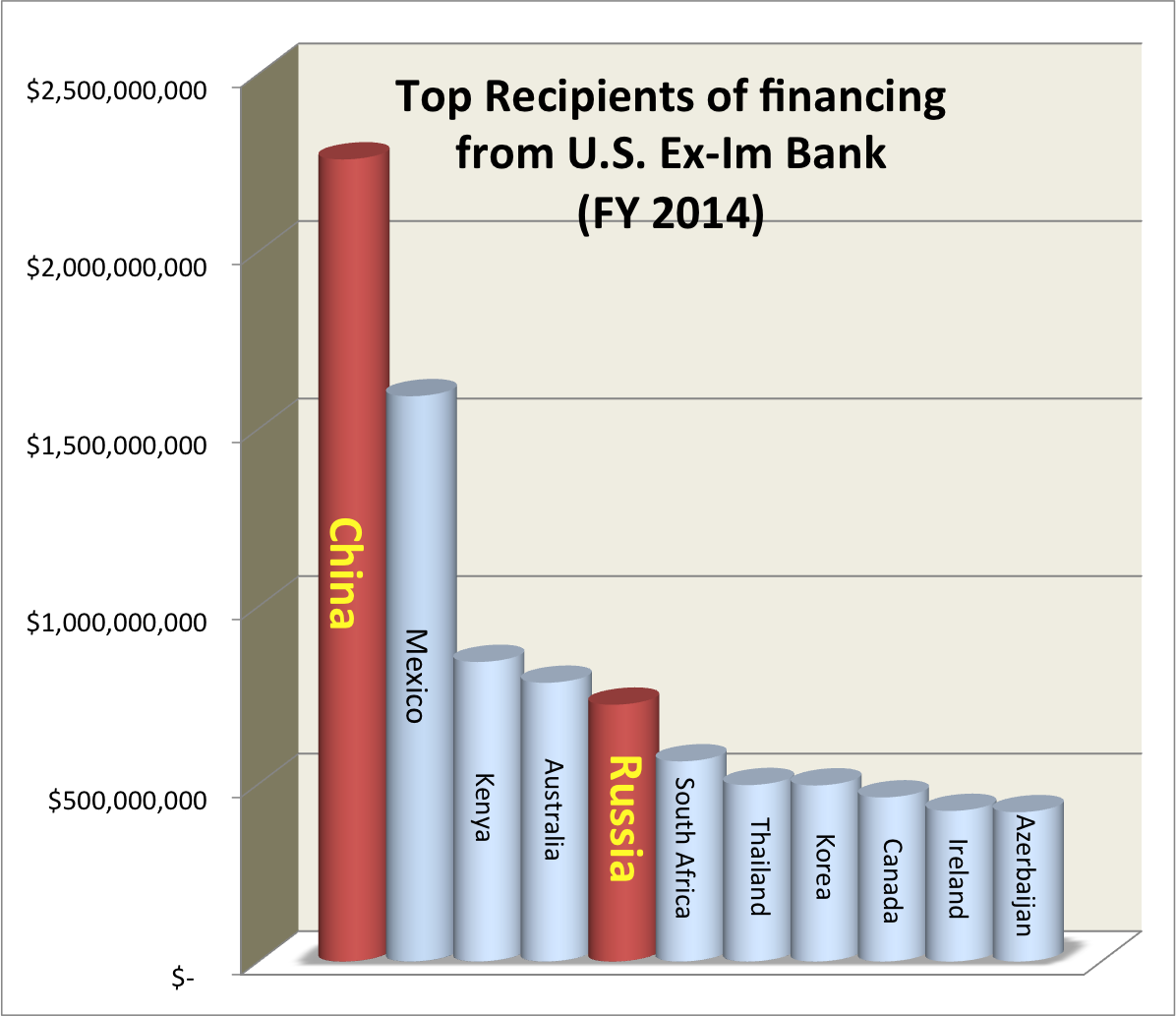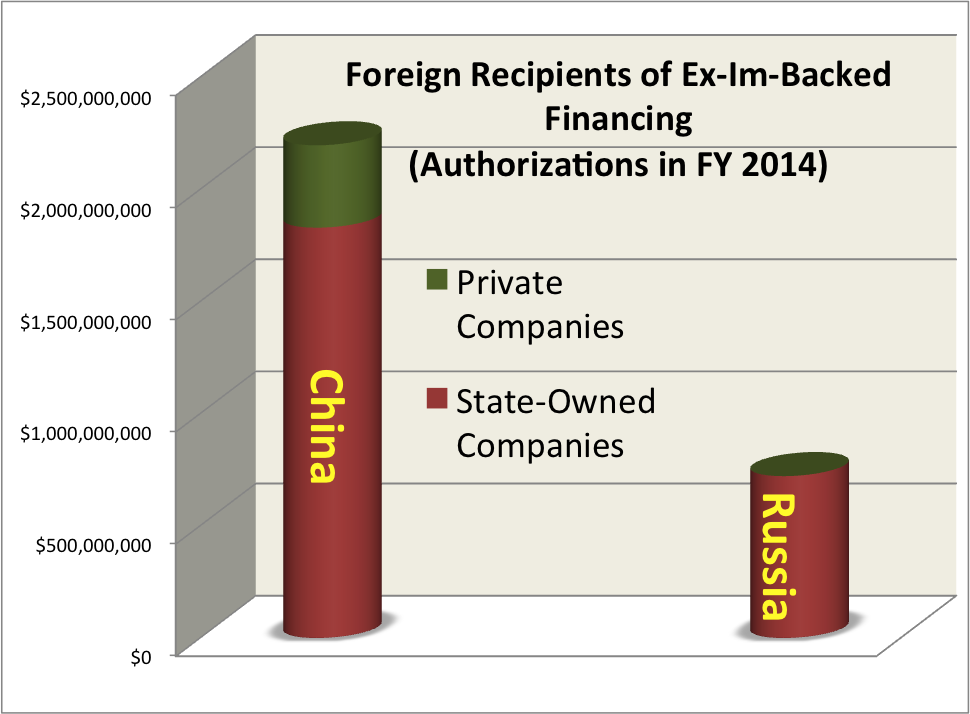Conservative radio host and blogger Hugh Hewitt is pushing hard on the argument that the Export-Import Bank of the United States is an effective foreign policy tool. “Soft power at its best,” he calls it.
Today on Twitter, Hewitt posited that Ex-Im is a good tool to counter China’s influence in the world. But here’s the thing: China is the single biggest recipient of Ex-Im financing. Russia is in the top 5. See the chart below:

And a vast majority of these subsidies go to state-owned companies, thus propping up the industrial policy in the countries Hewitt claims we’re trying to combat:

How is it countering China’s influence for us to enrich China’s state-owned banks and airlines? What exactly are we “exit[ing]” if we leave two percent of American exports to find financing like the other 98 percent—through the private sector?
Look at the specifics of recent deals with China, and it becomes even tougher to see Ex-Im as a good foreign-policy tool. Ex-Im has given more than $50 million in loan guarantees to the Export-Import Bank of China in the past two fiscal years—propping up the very state organ our Ex-Im is supposedly battling. Last year, Ex-Im helped the Chinese build a semiconductor plant—hardly taming China’s global importance.
Former deputy national security advisor Mark Pfeifle wrote recently in the Wall Street Journal that Ex-Im “maintains an operating agreement with Russian arms exporter Rosoboronexport … a chief weapons supplier to Bashar Assad’s regime in Syria and has supplied advanced missile systems to Iran.”
Propping the arms trade and the industrial policy of China and Russia hardly seems like “soft power.”
